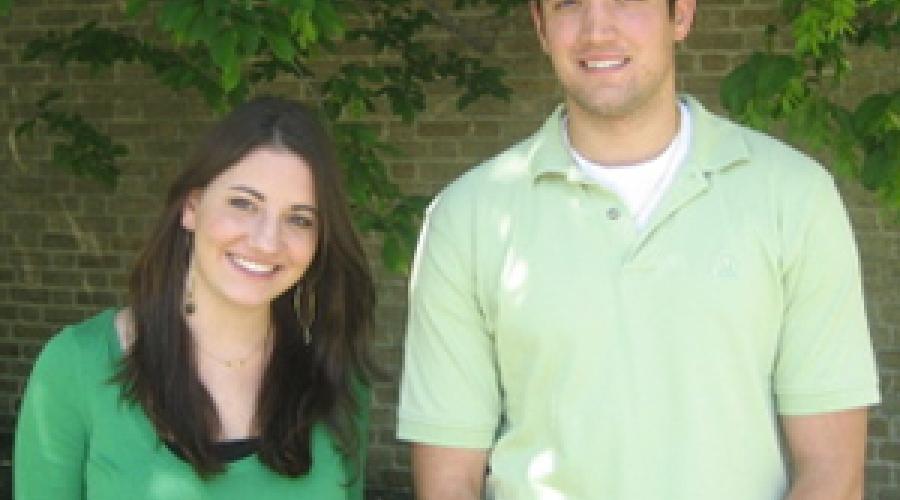
Learning Through Service
In South Africa for a service-learning internship, ILR students were startled to see the numbers of people who depend on wheelbarrows for transportation.
"Wheelchairs won't work in the rural areas," so wheelbarrows are used to navigate rutted roads and walkways, Rooker explained.
Funded by grants from ILR International Programs and organized together with the Employment and Disability Institute, the internship took Rooker and Einstein to the southern tip of the African continent and to the next step of applying what they learn at ILR.
"I realized how relevant my studies have been to many of the issues that were discussed – training, staffing, retention and education," Einstein said.
Sites visited included a learning center for children with severe and multiple disabilities, assembling and manufacturing workshops and a self-help center for quadriplegics and paraplegics. Rooker and Einstein were hosted by the QuadPara Association of South Africa and the National Council for People with Physical Disabilities in South Africa.
"Everywhere we went," Rooker said, "we helped a little and got the ball rolling."
Rooker and Einstein's assignments during the six-week summer internship included writing a recycling business proposal for a dozen self-help centers and preparing students for job interviews. They also created a job placement data base and evaluated a computer training program.
In South Africa, they said, lack of transportation for people with disabilities poses a barrier to their employment.
Most public buses do not accommodate people with disabilities, Rooker and Einstein said. Taxis often charge double or refuse to stop for people with disabilities.
"The jobs are there," Einstein said, "but they have no way to get there."
Ironically, South Africa has excellent accessibility laws on the books, but the laws are largely impotent, Rooker and Einstein said.
"There are new buildings with no elevators, no ramps. We wouldn't think that would still be going on," Rooker said.
"Now, I look for those ramps," he said. "It changed the way I think."


